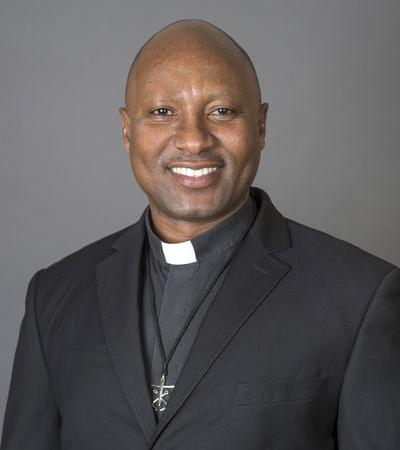The African Quest for Christ: Reimagining and Reconstructing African Christology
Graduate Research Grant
Religious and theological reflections in contemporary Africa that give rise to African Theology and specifically the African sense of who Christ is (Christology), are heavily influenced by an almost new culture and conceptual framework. For the longest time, this framework used to, but no longer refer or rely on African ancestral veneration system or African ecclesial inculturation. The rise of new practices and behaviors that affect the totality of the thinking and decision-making process, which include religious/faith behaviors, and its rationalization are a result of new social organizations of cultural differences (Barth. F, 1969). This is happening in African societies that for some decades now decades have experienced both planned and unplanned regional movements. The movements are due to war and refugee situations, brain drain which is a result of economic and political stability/instability as well as imbalance in educational privileges, and also societies in the process of integrating and settling former and present refugees in stable countries and communities. The result is the formation of new and integrated social organizations and communities. These (newly integrated communities), whether caused by refugee situations or other social, political and economic movements/migrations, have become the hub for new cultural practices and have become the bird's eye through which we view and evaluate contemporary social, political, religious and economic African worldviews. From their behaviors, a new African way of looking at faith and at Christ is adjucated.
Report
Through a Kellogg Graduate Research Grant that I received, I traveled to Tabora, Tanzania for a second visit to conduct my research on my dissertation, titled, “The African Quest for Christ: Reimagining and Reconstructing African Christology.” The grant enabled me to engage in graduate research from December 7, 2018 – January 27, 2019. The change of dates for my field visit, as was originally requested, was due to the delay of the grant and flight ticket purchase. This field research was a second of two visits that I planned, to get the information needed for the completion of my dissertation.
On this visit, I traveled between two rural Catholic Parishes in the Archdiocese of Tabora, Tanzania for purposes of ethnographic observation on operative social and cultural practices, the vantage points through which I evaluate contemporary social, political, religious and economic African worldviews. These areas are important in my Christological research because they do not just determine how Christians respond to their faith in Christ, but they are the actual basis/foundations in the making of the contemporary African Christology.
My visit focused first in observing different forms of catechetical teachings and training in parishes, ranging from weekdays and Sunday homilies, parish seminars, parish pastoral councils, catechism classes, charismatic meetings, and ecumenical programs. Secondly, I attended and observed several political and social development meetings as well as continuous development projects in the villages surrounding these two parishes, including school building projects, farming chores with families, as well as buying and selling at the market. The purpose of these encounters was to observe how all these structures help in forming social principles and personal behaviors for Christians self-knowledge and human development. My dissertation tries to argue that these principles are foundational for faith development and transformation, and they specifically are the determinant factors in constructing contemporary African Christology.
To a far greater extent, my time in both Ulyankulu and Ndala Parishes in Tabora turned out to be very successful, and I was able to get an incredible amount of information for the completion of my dissertation. Moreover, this visit helped me to raise further questions for future researches in this and other areas of religious and social development.






